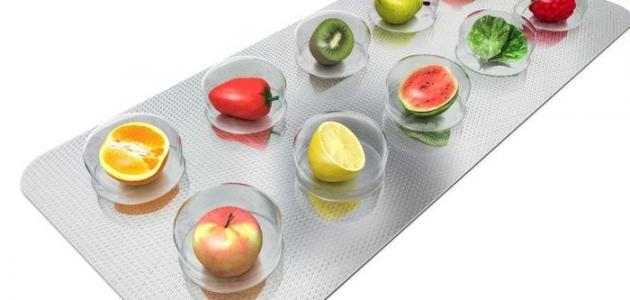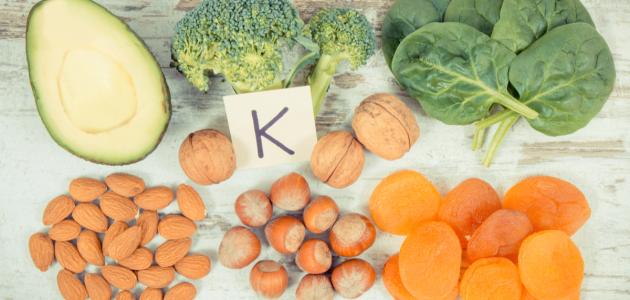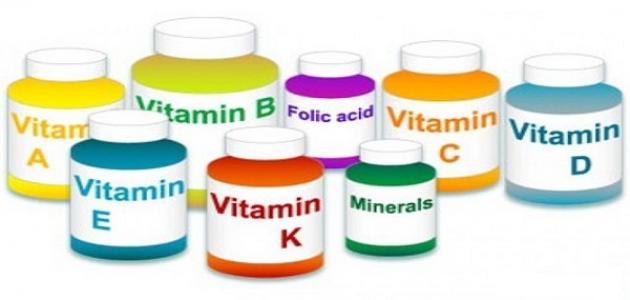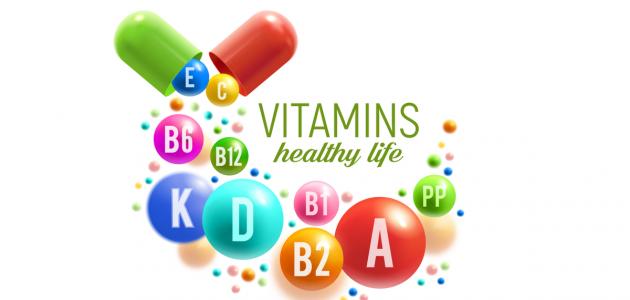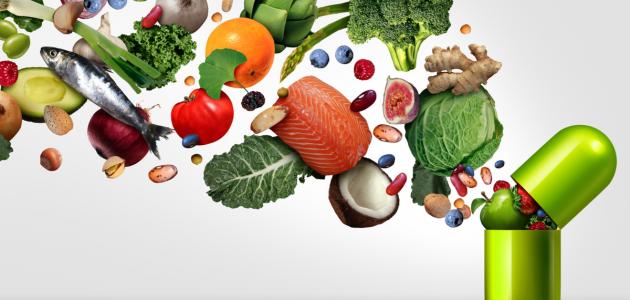Contents
Food and brain health
The human brain works around the clock, controlling thoughts, movements, breathing, heart rate, senses, etc. This means his constant need for energy, which he gets through food, and in this way food directly affects the brain. Eating healthy, high-quality food that contains high amounts of vitamins, minerals, and antioxidants nourishes the brain and protects it from free radicals that are based on cell destruction. [1]
The most important vitamins that develop mental abilities
Among the vitamins that help in developing mental abilities are vitamin E, C, B6, B12, and B9.
Vitamin E
Vitamin E is known to have a great role in fighting free radicals and combating cell damage, and many studies have found that vitamin E delays the development of Alzheimer's disease (mild and moderate). In 2014, a study was published in the Journal of the American Heart Association in which it stated that tocotrienol, found naturally in palm oil, a type of vitamin E, can protect the brain from developing white matter lesions that have been associated with an increased risk of stroke and Alzheimer's disease. And Parkinson's disease . Sources of Vitamin E:
- Nuts and seeds, such as almonds, pecans, peanut butter, peanuts, hazelnuts, pine nuts, walnuts, and sunflower seeds
- Oils, such as wheat germ oil, sunflower oil, safflower oil, corn oil, and soybean oil.
- Vegetables, such as spinach, chicory, Swiss chard, and turnips. [2]
Vitamin B6
Contributes to vitamin B6 in many functions of the organs of the body, and there is a need vitamin B6 for the growth of healthy brain and nervous system, also plays an important role in the production of serotonin and dopamine required for the work of neurotransmitters, and cardiovascular, digestive, and immune, muscle, and making hormones serotonin and noradrenaline , which Affects a person's mood, as well as helps the body to make melatonin, which is important in regulating the internal clock. Sources of vitamin B6: beef, poultry, fish, eggs, whole grains, nuts, beans, bananas, and potatoes. [3]
Vitamin B12
This vitamin is important for many functions of the body, such as brain health, blood cell production, and proper nerve functioning. Vitamin B12 is also taken orally in cases of memory loss, Alzheimer's disease, slowing aging, boosting mood, energy and focus, mental function, and the immune system.
Most vegetarians, the elderly, and people who suffer from intestinal disorders suffer from a deficiency of this vitamin, and difficulty absorbing vitamin B12 from food and nutritional supplements by mouth. Vitamin B12 deficiency leads to permanent nerve damage, impaired brain function, and memory loss. Sources of this vitamin include: seafood , liver, beef, poultry, fortified soy milk, and dairy products such as milk, yogurt, and cheese. [4] [5]
Folic acid
Folic acid or vitamin B9 is one of the vitamins very important to the body due to its association with brain function. Eating an adequate amount of vitamin B9 every day promotes healthy brain function and helps maintain the mental and psychological health of the human being. Pregnant women also need a larger amount of folic acid because it is very important when the body is in a rapid growth, especially during pregnancy and breastfeeding.
Sources of folic acid: green leafy vegetables, citrus fruits, beans, whole grains, salmon, milk, and avocados. Vitamin B9 deficiency leads to many symptoms including loss of appetite , shortness of breath, diarrhea, inflammation of the tongue, irritability, and forgetfulness. In the long term, a lack of folate may lead to poor growth or gingivitis as well. People at high risk of vitamin B9 deficiency are alcoholics, patients with irritable bowel syndrome , and patients with celiac disease, or Celiac Disease. [6]
Vitamin C.
Vitamin C is a water-soluble vitamin, its active form is called ascorbic acid. A person is one of the mammals that does not produce this vitamin in their body due to a genetic mutation, so you must eat foods rich in it to obtain the daily needs of it. Sources of vitamin C include fruits, especially citrus fruits, and fresh vegetables. Among the functions of vitamin C are the following:
- Vitamin C is one of the most important antioxidants, and it has a role in recycling other antioxidants in the brain, such as vitamin E, and it also has a role in preventing diseases related to oxidative stress, such as Alzheimer's and Huntington's dance, as well as mental disorders such as schizophrenia.
- It has a role in the transmission of nerve messages through the brain, and it directly affects its electrical impulses.
- Synthesis of dopamine, adrenaline, and release of neurotransmitters through nerve cell connections.
- It has a role in the reabsorption of the neurotransmitter glutamate and the regulation of its concentration.
- Vitamin C has a clear role in the maturation of collagen, which is part of the basement membrane of blood vessels.
- Vitamin C works to protect brain cells from damage that free radicals cause.
- It enhances memory , preserves the mental abilities of the elderly, and reduces their suffering from dementia diseases.
- It protects against strokes that affect the mental abilities of the individual.
- Low vitamin C concentration has serious consequences for nerve cell function and integrity. [7] [8]
Improve brain health
There are many different disorders and diseases that can affect the brain, and there are preventive measures that can be taken to maintain the health of the brain, including: [9] [10]
- Quit Smoking : leads smoking to stroke, dilation of blood vessels in the brain, and dementia.
- Maintaining normal levels of blood pressure , cholesterol, and blood sugar to prevent Alzheimer's disease, brain aneurysms, and stroke. Blood pressure and cholesterol can be reduced by lowering the amount of sodium and increasing the amount of fiber in the diet.
- Maintaining a healthy heart : hardening of the arteries is associated with stroke, aneurysm, and dementia. In addition to many other heart problems such as: arrhythmias, valvular defects, and heart infections, which can increase the risk of stroke.
- Observance of general safety instructions, such as wearing seatbelts and helmets, which reduces head injuries that may affect the brain and may cause epilepsy .
- Exercising : Exercising can reduce cholesterol and blood pressure, and help to maintain a healthy body weight, which reduces the risk of stroke.
- Relax , and spend quality time, such as listening to music, or watching TV at the end of a tiring day.
- Dealing with positive people constantly , keeping away from negative people, and spending more time with friends enhances mental and mental health.
- Abstaining from alcohol , drinking alcohol is harmful to brain health, and causes anxiety and depression .
- Set long-term goals on the personal and professional level and work to achieve them, which reduces stress and increases self-satisfaction.
- Writing notes and recording the feelings and reactions of a person to life events promotes mental health.
- Learning new things constantly and exposing the brain to challenges enhances memory, and the active brain produces new connections between neurons that allow cells to communicate with each other, and this helps to store and retrieve information more easily, regardless of age. New things can be learned such as:
- Learn to play an instrument.
- Change of occupation and practice of a new profession.
- Starting a new creative hobby , such as: drawing, cycling, photography, and gardening.
- Learning a foreign language, learning more than one language may slow down the aging of the brain.
- Stay informed about what's happening in the world.
- Learn to cook a new dish.
- Stimulating the brain continuously, stimulating memory and solving problems; The unused brain, like unused muscles, atrophies and its cognitive abilities diminish. Among the things that stimulate the brain: traveling, visiting museums, reading books, newspapers, or magazines, playing thinking games such as chess , crossword puzzles and sudoku , playing musical instruments, practicing handicrafts such as drawing, coloring, ceramics, and disposing of a calculator to perform calculations mentally, And volunteer.
- Neurobics practice : Researcher Lawrence Jim Katz, professor of neuroscience at Duke University Medical Center, coined the term noirropics. It is a unique system of brain exercises, such as: going to work from a new road, wearing clothes with closed eyes, carrying the phone and using the toothbrush with the opposite, unusual hand, as the brain needs to receive new stimuli permanently, and it is very feasible to set challenges for it.
References
- ↑ Eva Selhub MD (17 2015), “Nutritional psychiatry: Your brain on food” , Harvard University , Retrieved 3-8-2017. Edited.
- ↑ Nancy Christie, "3 Key Nutrients for Better Brainpower" , everyday health , Retrieved November 13 , 2016 . Edited.
- ↑ Katherine Lee, "The Benefits of Vitamin B6" , everyday Health , Retrieved 11-13-2016. Edited.
- ↑ Mara Tyle, Erica Cirino (Reviewed on 8-12-2016), "What Is a Vitamin B-12 Test" , Health Line , Retrieved 11-13-2016. Edited.
- ↑ "VITAMIN B12" , Web Md , Retrieved 15-11-2016. Edited.
- ↑ Ashley Henshaw (27-9-2012), “Guide To The Benefits Of Vitamin B9 (Folic Acid) Read more at http://www.symptomfind.com/nutrition-supplements/vitamin-b9-guide/#CZIZtshFvc4KseW8.99 " , Symptomfind , Retrieved 13-11-2016. Edited.
- ↑ Stine Hansen, Pernille Nyborg, Jens Lykkesfeldt (19-9-2014), "Does Vitamin C Deficiency Affect Cognitive Development and Function" , US National Library of Medicine , Retrieved 11-13-2016. Edited.
- ↑ "VITAMIN C" , Web Md , Retrieved 15-11-2016. Edited.
- ↑ "Improve Brain Health" , Health Line , 2-9-2014 Reviewed on, Retrieved November 13, 2016. Edited.
- ↑ "How to Boost Brain Power and Memory" , emedexpert , 29-8-2016 Updated on, Retrieved 11-11-2016 . Edited.
